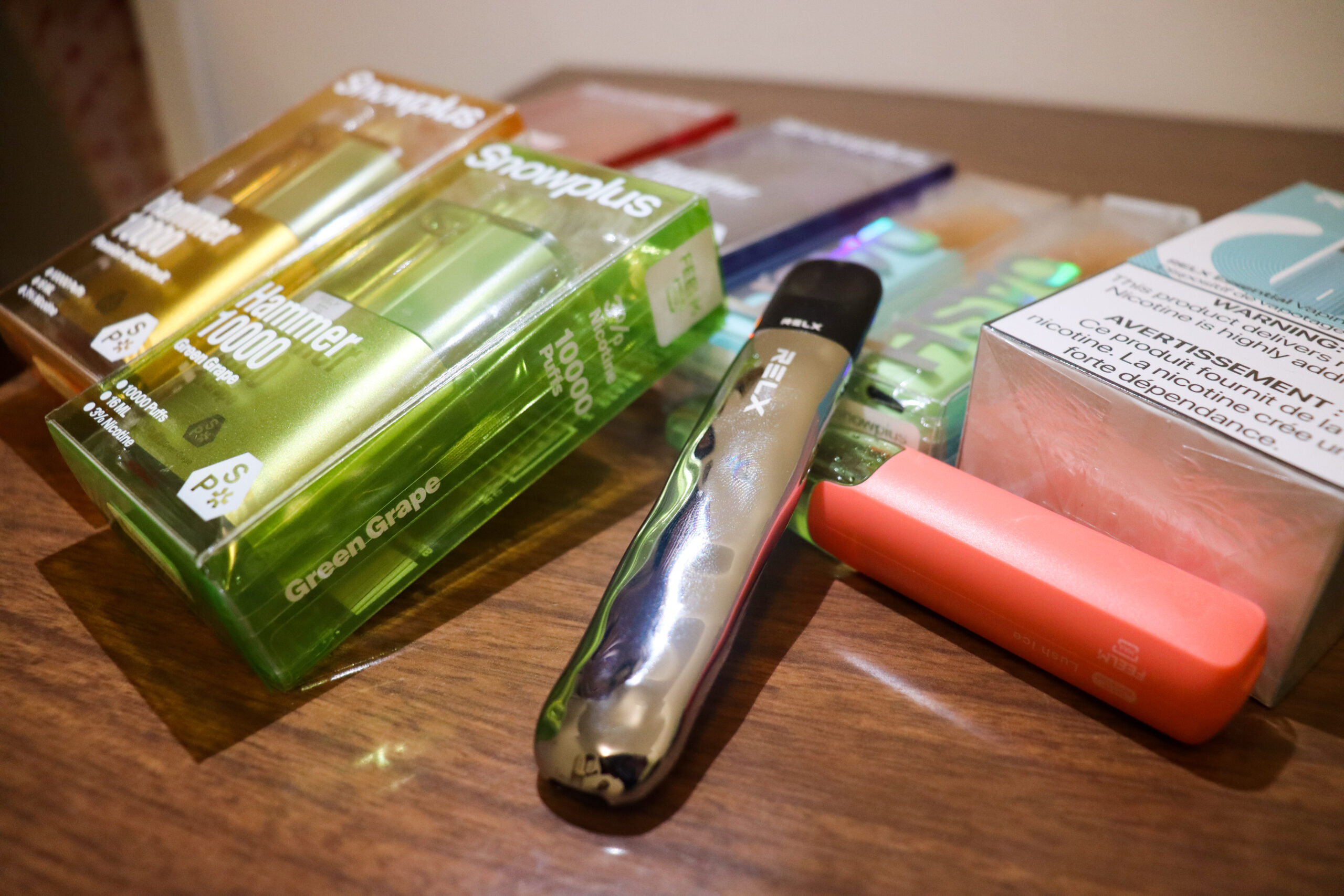Gen Z’s passion for mental health is not reflected in the rising popularity of vaping
As new generations emerge, youth culture experiences a significant transformation.
As Gen Z, I’ve often heard some people mention that we are a more “mindful” generation, unafraid to speak our minds yet careful to remain polite to others. On the other hand, others refer to us as “sensitive,” and that we are quick to complain about trivial matters. One of those matters is the topic of mental health.
However, once faced with facts, the discussion about mental health does not only become necessary, but it also becomes a vital need. According to one study, “only 41% of Gen Z members aged 18 to 26 are thriving, while millennials at the same age are thriving at a rate of about 60%”. That is more than half of a whole generation feeling stuck and unprepared for the future, with the majority of Gen Z describing their mental and emotional wellbeing as “poor.” So, how do we deal with this?
Compared to the previous generation, “help” does not come in the shape of a beer bottle. Over the past few years, as discussions around mental health are prioritized, the concept of “mindful drinking” has pervaded the consciousness of many, reflecting a higher demand for non-alcoholic drinks. Could this be why Gen Z chooses to refrain from drinking?
On the other hand, that mindfulness also impacts people in a negative way. While the use of tobacco is controversial, a study found that there is an increase in vaping among 18-24 year olds, even if they have not smoked before. It is interesting to note that vape (and e-nicotine) products were created in China in 2003 to be a healthier alternative for regular smoking or those looking to quit, but it has now become a trendy alternative for those with no previous smoking experience at all.
Now Gen-Z are choosing to vape to relax rather than drinking alcohol or smoking. Vaping and e-juices are surrounded with the aura of a “healthier alternative”, which perhaps makes it easier for Gen Z to deflect the consequences of vaping . As such, vaping has become more accepted socially. Even I remember students at my high school vaping in the hallways or bathrooms, while tobacco was considered more “shocking.”
Vapes come in different flavors, cute packaging, and a promise of being healthy, contributing to its temptation. So, it’s not surprising when research confirms that, in 2011, only 1.5% of high schoolers admitted to smoking an e-cigarette, while that number jumped to 27.5 % in 2019. What’s more is that the longer someone vapes, the more likely they are to shift to smoking regular cigarettes, which is terribly ironic considering the initial purpose of vapes to reduce nicotine inclinations.
How is it that Gen Z, a generation recognized for its focus on mental health awareness and having the highest sobriety rates to date, is experiencing such a rise in vaping? I believe it relates back to our focus on mental health: the desire to take care of ourselves (both mentally and physically) while not repeating the mistakes of the past could become our hubris, and the healthier appeal of vapes makes it easy to do just that.
The world is busier and more complicated than ever, and the interconnectedness fostered through globalization and social media ensures that we know exactly what’s happening halfway across the world. This, in addition to the recent financial insecurities that our generation faces, seems to be taking a toll on people mentally. So, while outright drinking is decreasing, the need to escape, cope, and deflect our stress is a defining and timeless impulse that the rising popularity of vapes accounts for.
I worry that despite our passionate culture of mental health, we still have a lot of work to do when it comes to cultivating more mindful and sustainable alternatives to coping with stress. It may seem vaping is a healthier alternative, but in my opinion, its widespread use in the future may amount to the same substance issues that have marred previous generations, defeating its initial purpose and opening up new avenues for addiction and deteriorating mental health.
So, while Gen Z has come farther than previous generations when talking about and validating mental health, we must keep in mind that vaping is a “healthier alternative”, but it does not make it healthy in the first place. It’s not enough just to repackage and rebrand alternatives that end up perpetuating similar harms.

